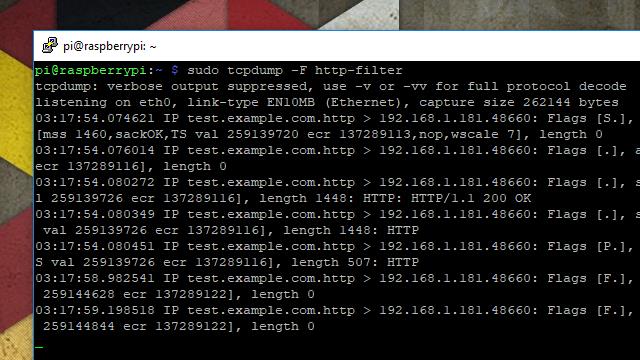

You may also use Wireshark capture and analysis tool. There are occasions when you want to capture packets using tcpdump rather than wireshark, especially when you want to do a remote capture and do not want. To capture all packets from a specific host on the network: Tcpdump: verbose output suppressed, use -v or -vv for full protocol decode

To capture all packets on the WAN (the below assumes that interface eth1 is the WAN interface): tcpdump relies on libcap, therefore it can produce standard pcap analysis files which may be processed by other tools. It may be used to capture packets on the fly and/or save them in a file for later analysis. Now I think, you can play with the command as per your need.Tcpdump is a network capture and analysis tool. w mypcap.pcap will create that pcap file, which will be opened using wireshark. You can remove this to capture all packets. Port ftp or ssh is the filter, which will capture only ftp and ssh packets. Default is eth0, if you not use this option. i eth0 is using to give Ethernet interface, which you to capture. 65535, after this capture file will not truncate. s 0 will set the capture byte to its maximum i.e. You can use following command to capture the dump in a file: tcpdump -s 0 port ftp or ssh -i eth0 -w mycap.pcap I am writing this post, so that you can create a pcap file effectively. When you create a pcap file using tcpdump it will truncate your capture file to shorten it and you may not able to understand that. so many other options available, see tcpdump man page.you can directly see the capture of a remote system in any other Linux system using wireshark, for more detail click “ Remote packet capture using WireShark and tcpdump”.you can create filter to capture only required packets like ftp or ssh etc.you can also create a pcap file (to see the capture in wireshark),.you can see the packet dump in your terminal,.When you have only command line terminal access of your system, this tool is very helpful to sniff network packets. Tcpdump is a command line network sniffer, used to capture network packets.


 0 kommentar(er)
0 kommentar(er)
